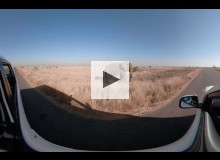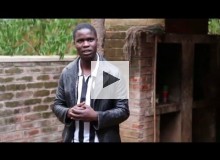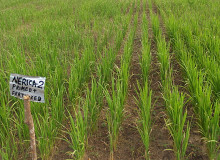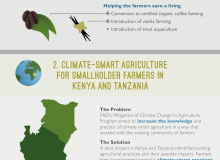Africa
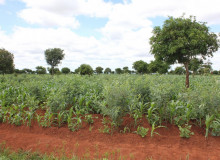
Agroecology in practice: One of Moses Kansanga's agroecology projects in Malawi studies the local practice of intercropping cereal crops and legumes to better understand ecological synergies and how they can be leveraged to increase productivity while supporting healthy local ecosystems and communities. (Moses Kansanga)
Planet Forward Correspondent | George Washington University
Understanding agroecology as a framework to include ecological and social justice frameworks in agriculture, with professor of Geography and International Affairs, Moses Kansanga, Ph.D.
Mandela Washington Fellow
Mwangala Maunga's solar powered water purifier aims to bring clean water to people across Zambia and to inspire other girls to pursue careers in science.
Mandela Washington Fellow
Wildlife lawyer and farmer Taku Mutezo has a solution to Zimbabwe's human-wildlife conflict that uses natural and local resources, and benefits the community as well.
The George Washington University
African elephants are quickly disappearing from this planet solely because of humans. With one hundred elephants killed each day by poachers seeking ivory tusks, the situation is a crisis.
Director of Academic Adventures, Planet Forward
As the world’s population nears 9 billion by 2050 everyone from astronauts to zookeepers are trying to figure out innovations to feed our constantly populating planet.
Digital Media Producer, Planet Forward
Necessity is the mother of invention, and the necessity for cheap, imported goods in Ethiopia has led to a boom in recycling.
The George Washington University
Women face unique challenges when it comes to climate change, especially where water is concerned.
University of Arizona Honors College
Rice seems simple, but its genetics are complex. Unlocking them could be the key to feeding Africa.
Graphic Designer, Planet Forward
Who's climate-smart already? We take a look at three cases where the climate-smart agriculture approach has helped communities face climate change.


